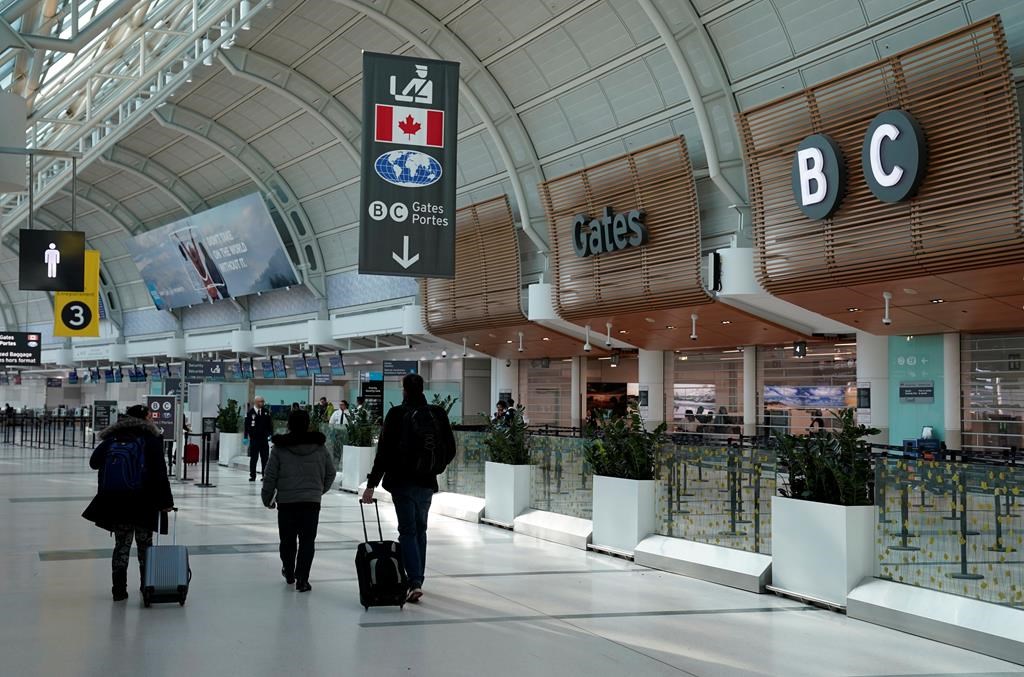Federal health officials appear to have warned in early February, as the novel coronavirus spread globally, that Canada did not have the resources to enforce a quarantine order on travellers returning from China’s Hubei province.

Federal, provincial and territorial health departments agreed not to order tens of thousands of travellers arriving in Canada from China to quarantine in February in order to reduce pressure on public health resources, according to a memo addressed to Health Minister Patty Hajdu and signed by the Public Health Agency of Canada’s president and chief public health officer.
The memo was included in roughly 1,000 pages of documents shared by public health officials with the federal health committee last month.

In it, officials said there were roughly 20,000 passengers coming into Canada from China every week and that attempting to enforce or track a mandatory quarantine on them would be unrealistic.
“If this approach were to be extended to China, it would be unsustainable given the volume of travellers,” the memo explained.
“A voluntary self-isolation places less pressure on public health resources.”
- What is a halal mortgage? How interest-free home financing works in Canada
- Capital gains changes are ‘really fair,’ Freeland says, as doctors cry foul
- Ontario doctors offer solutions to help address shortage of family physicians
- Canada will take bigger economic hit than U.S. if Trump wins election: report
The senior public servants also agreed, at the time, that “most individuals” would respect requests to self-isolate after receiving a handout from officials at the airport.
“Canadians may question a voluntary approach since there is no ability to enforce or ensure compliance,” said the memo.
“However, there is anecdotal evidence that individuals who have returned from Hubei are already self-isolating. We could expect that most individuals would be compliant, given concern and anxiety associated with the coronavirus.”
Asked about that advice from federal health officials and why the federal government didn’t do more to bolster public health resources at that time, Prime Minister Justin Trudeau responded: “We recognized early on that this was a challenge and we did take many measures to try and control or prevent or ensure that Canada was less vulnerable to the spread of COVID-19 that we were seeing elsewhere in the world.”
“With hindsight, I’m sure there are lots of things that we could have done differently, could have done differently, but I can tell you that every step of the way, we took the advice of our medical professionals and our public health experts seriously and did as best we could,” the prime minister said during a news conference Wednesday about Canada’s response to the COVID-19 pandemic.
“I’m sure there will be many many people reflecting on different countries’ responses and what we need to do to ensure we’re even better prepared next time.”
The memo sent to Hajdu was prepared following a briefing delivered by the country’s top public health officials to their managers in health departments across Canada about how to address the growing crisis.
The memo said that enforcing the Quarantine Act would require more resources for local public health units so they could “undertake active monitoring of each individual,” as well as an emergency order.
A month later, on March 25, the federal government made an emergency order under the Quarantine Act that required any traveller entering Canada by air, sea or land to quarantine for 14 days, whether they were experiencing symptoms of COVID-19 or not.
The government has asked all residents, regardless of travel history, to stay home except for essential trips and to keep a two-metre distance from other people when they are out in public.
Results of an Ipsos poll conducted for Global News suggests one in four people are not practicing these physical distancing recommendations as much as they should.

Trudeau was asked by a journalist at his daily briefing on Wednesday whether there are any further tools he would consider using to enforce social distancing or punish those who break the rules.




Comments